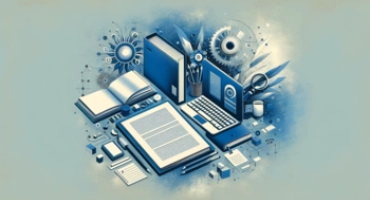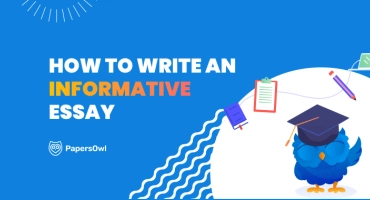Sharper Pens, Clearer Minds: Editing Revising Tips for Perfecting Your Paper
Table of contents
- 1 The Initial Review
- 2 12 Tips on Editing Your Paper
- 2.1 Take a Break
- 2.2 Read Aloud
- 2.3 Use Editing Tools
- 2.4 Focus on One Aspect at a Time
- 2.5 Check Grammar and Punctuation
- 2.6 Improve Clarity and Conciseness
- 2.7 Eliminate Redundancy and Cliches
- 2.8 Verify Sources and Citations
- 2.9 Address Transitions
- 2.10 Consult a Style Guide
- 2.11 Read Backwards
- 2.12 Consider Professional Editing
- 3 Ready to Start Editing?
Essay writing is among the most common assignments students of different majors receive. Embarking on the journey of writing a research paper or essay is the first step in crafting a compelling work. The true magic lies in editing, where your initial draft transforms into a polished masterpiece. Editing essays is not merely a task to correct grammatical errors. It is a nuanced process that involves refining ideas, improving clarity, and enhancing the quality of your writing. If the entire process, from research to final editing, seems too demanding, many students opt to pay for a research paper written by experts.
From this article, you will learn:
- what to pay attention to while writing and editing an essay;
- essential rules for editing academic writing;
- how to bring your text to perfection.
So keep reading!
The Initial Review
The initial review of your essay’s plan is a foundational process akin to taking a step back to appreciate your work. It helps to focus on big-picture elements that lay the groundwork for a well-crafted piece. The emphasis is not on the meticulous correction of commas or typos. The main task of editing in the writing process is to check the structural integrity, organizational coherence, and logical flow of your writing.
Consider the initial review as the unveiling of the blueprint of your work. It’s time to examine the architecture, ensuring that each section aligns with the next and that ideas unfold logically. For those seeking guidance, a research paper service can help review and refine each section to ensure clarity and coherence. Ask yourself: Does the introduction effectively set the stage for what follows? Is the body of your work structured logically, guiding the reader through a clear and understandable narrative? Are transitions smooth, facilitating a seamless flow of ideas?
During the initial review, these questions helped to create a more efficient and targeted editing articles process. It allows you to identify and rectify any structural weaknesses or organizational lapses. Besides, it helps to prevent the need for extensive revisions in later stages. The initial review in the essay outline serves as a strategic investment of your time, ensuring that your writing meets the expectations of grammatical correctness and captivates your audience with a well-crafted and organized narrative.
12 Tips on Editing Your Paper
Start editing once you have assessed your work and found no critical or logical errors. This process may be lengthy, but it will only improve your text. So, how to edit a paper? Are there any editing techniques in writing? Below are some tips that will help you revise and edit efficiently.
Take a Break
The first thing you need to do before editing is to pause and take a break. You can go for a walk, cook a meal, or chat with friends. You can do anything that distracts you from your paper’s text. After you have rested, you will be able to notice all the shortcomings and errors with a fresh look and edit an essay efficiently. If necessary, take breaks several times, and take a break every time you see that you have stopped noticing errors in the text.
Read Aloud
The next important thing to do while working on your paper is to read aloud. You can’t always notice minor flaws when you silently read your paper. When you speak the essay’s text, you can immediately see logical errors and how you can improve the written sentences. If the text looks complicated and confusing, simplify what you have written and replace it with synonyms. After you edit your own writing, read the text aloud again. Also, use overwriting.
Use Editing Tools
Editing tools serve as invaluable companions. They offer insights and corrections beyond manual review capabilities.
Consider these grammar and spell-check software:
It can catch overlooked errors, ensuring a polished and error-free manuscript. Style guides provide writers with rules for style consistency and coherence. Additionally, tools like Hemingway Editor analyze writing for readability and suggest improvements.
Professional essay editing tools don’t mean relinquishing creative control. It empowers writers to refine their work more comprehensively.
Focus on One Aspect at a Time
This tip will help you cut down on all your shortcomings quickly. It focuses on individual tasks and assists you to complete the task more efficiently. Self-editing is a process that takes place in several stages. Imagine you decided to eliminate punctuation errors first, so read the text, focusing only on this. The second time you decide that it’s time to remove the passive voice, focus only on this and make edits. You need to be careful if you fall into the use of passive voice. This way, step by step, you will improve your paper and make it more simple and interesting. Moreover, you will not miss anything important with this method.
Check Grammar and Punctuation
Now, let’s review the points you should check in your text. Of course, the most important thing is grammar and punctuation. They show not just your mastery of the subject but your education in general. Thus, you need to do a spelling check. No one will want to read a text full of errors and typos. Do not be lazy to spend more time editing your writing and eliminate all the errors.
Improve Clarity and Conciseness
A well-constructed essay not only conveys ideas but does so with meticulous precision and transparency.
The process involves:
- eliminating ambiguity;
- eradicating redundancies;
- embracing a language.
Each word must contribute purposefully, facilitating effortless comprehension and engendering reader engagement. Through assiduous proofreading, one must meticulously pare down superfluous elements, sculpting sentences to embody clarity. Simplicity should be embraced without compromising substance, ensuring a seamless narrative flow. In this pursuit, each word becomes a brushstroke on the canvas of your essay ─ contributing to a lucid, compelling picture. Mastery of the delicate equilibrium between clarity and conciseness empowers your writing, transforming it into a potent medium that resonates with impact and captures your audience with precision and insight. It is one of the most important self-editing tips.
Eliminate Redundancy and Cliches
In pursuing articulate and impactful writing, eliminating redundancy and cliches is paramount. Redundant expressions, often unintentional echoes of the same idea, can dilute the clarity and precision of your message. Common cliches, once vivid, lose their potency through overuse and can detract from the originality of your work. Consider this an opportunity to infuse freshness into your writing, making every word count.
For instance, phrases like “future plans” or “free gift” carry inherent duplicity; the terms imply the concept. Instead, precision can be achieved by employing concise alternatives such as “plans” or “gift.”
By conscientiously identifying and excising these linguistic redundancies and cliches, your essay not only attains a heightened level of sophistication but also ensures that each expression contributes uniquely to the richness of your narrative. Embrace the challenge of crafting economical and distinctive language, and watch your ideas shine through with newfound clarity and impact.
Verify Sources and Citations
In the meticulous process of essay refinement, verifying sources and citations is a crucial step toward academic integrity. Accurate and adequately attributed sources lend credibility to your work, substantiating claims and bolstering arguments. Rigorously cross-checking citations ensures the reliability of your information, guarding against unintentional errors and upholding the standards of scholarly writing. A vigilant approach to source verification fortifies your essay’s credibility and reinforces your commitment to intellectual honesty and the pursuit of accurate knowledge.
Address Transitions
Navigating the terrain of effectively writing your essay involves more than just conveying ideas ─ it demands fluidity in transitioning between them. Addressing transitions ensures a seamless flow, guiding readers through the narrative effortlessly. Transitional word phrases, or employing thematic connections, are thoughtfully crafted transitions bridges the gaps between ideas, enhancing coherence. Elevate your essay by considering transitions not as mere connectors but as architectural threads binding your thoughts into a cohesive, compelling whole.
Consult a Style Guide
A style guide is an indispensable companion in the pursuit of impeccable writing. Consulting a guide ensures formatting, citations, and language conventions uniformity. This meticulous approach adds professional polish to your essay. Also, it conveys a commitment to standards. A style guide is your compass, from punctuation nuances to citation intricacies, for navigating the terrain of writing academic papers.
Read Backwards
Professional editors use this unique technique, and it indeed improves your writing. For a concentrated spelling and grammar review, flip the script. Read your essay backward, starting from the last sentence and progressing upward. It helps a concentrated spelling and grammar review flip the script. This technique unveils overlooked errors by disrupting the conventional flow. Elevate your editing prowess by adopting this reverse perspective.
Consider Professional Editing
The last in our list of tips for editing writing is seeking professional help from a write my paper for me service if you feel unsure about your progress. Use the editing help to make your work easier if you doubt your editing progress or the document’s significance. A skilled editor polishes grammar and style. By outsourcing improvement, you ensure your document reaches its goal. Embrace the assurance of professional scrutiny, allowing your work to be experienced.
Don’t be afraid to ask for help. A professional editor will know what to look for and how to get your essay into shape.
Ready to Start Editing?
As you can see, the editing process is not as scary as it seems to be at first glance. Follow the editing tips from this article, and you will get an essay of high quality without errors, typos, and cliches.
Remember that an influential paper contains:
- verified data;
- a balance of active and passive voices;
- examples, etc.
Your task is to ensure that the essay reveals the topic and that everything is clear and easy to read. Remember to show sources and proper citations to ensure the paper is original and omits plagiarism.
These simple editing tips for writers will simplify the work on any paper and take your writing to the next level!






